Organizing aviation sports training (TTHK) in air force units under the Air Defense - Air Force (PK-KQ) is an important content to help pilots, flight members, and flight students improve their health, meeting strict requirements during flight training.
Highly specialized training activities
Aviation sports is a field applied to flight students, pilots, and flight members. This is a compulsory content to build the body's senses, endurance, and the sustainability of the nerves and vestibular system to adapt to airborne activities.
TTHK is important for pilots. Because flying activities take place in harsh, dangerous environments. Pilots must perform many complex flights, in different meteorological conditions, regardless of day or night, terrain in mountainous areas, islands. During the flight practice, pilots perform complex aerobatic movements, long duration consumes a lot of energy, inhibits nerves. Lieutenant Colonel Ngo Chi Thanh, Sports Assistant, Military Training Department - School, General Staff, Air Defense - Air Force Service said: "Regular TTHK training helps trainees clearly identify their body's position in space when participating in multi-directional rotation, multi-dimensional rotation, acceleration and overload changes. This activity helps pilots stay alert during flight activities because if their health is not good, unexpected events in the air can occur, leading to unsafe flight. Therefore, health is a particularly important factor for pilots. When recruiting, health check is the first criterion for selecting military pilot training."
TTHK includes many training equipment such as rotating ladders, centrifugal wheels, swings, rollers... Some supporting sports such as long-distance running, swimming, long jump to increase speed, strength, bounce, endurance. Basketball, volleyball, tennis to practice teamwork, quickness in handling situations. In addition, the unit also has an indoor gym with many supporting equipment, if the weather is bad, pilots can still practice.
Having participated in pilot examinations for many years, Doctor Specialist 2, Colonel Vu Quoc Chien, Head of the Ophthalmology-Dentistry-Maxillofacial Department, Air Defense-Air Force Medical Institute, Air Defense-Air Force Service said: “Pilots must have comprehensive overall health. For example, in ophthalmology, in flight training, light conditions change continuously, requiring 10/10 vision, standard color vision, flexible adjustment of distance and near, and fast eye movement. To achieve that, pilots must undergo rigorous training in vision in particular and other senses in general to adapt to all conditions of space and time and participate in complex flying activities such as acrobatics, cloud penetration, sea flying, and night flying.”
 |
Air Defense - Air Force tests aviation sports content for pilots. |
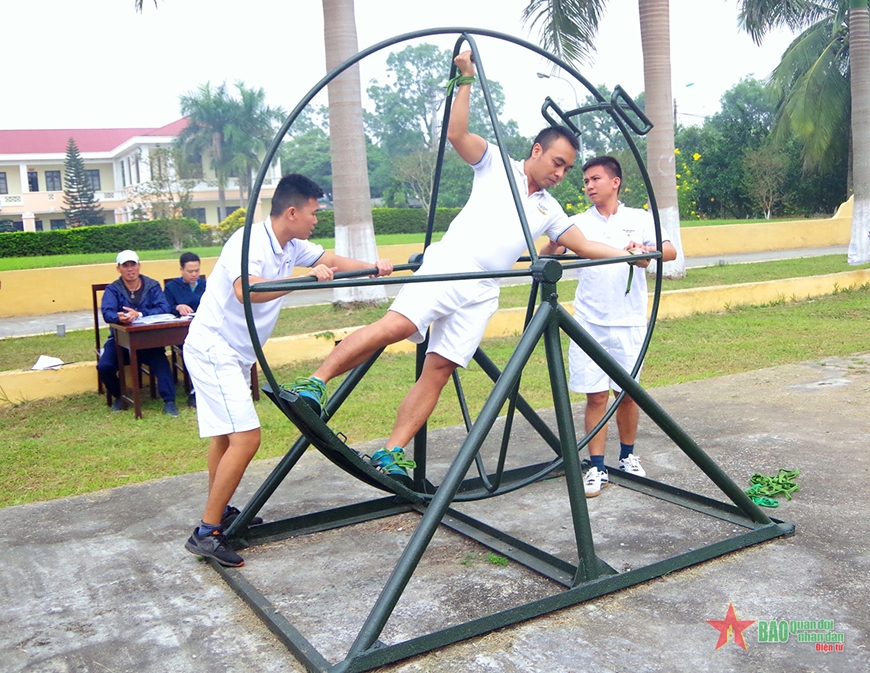 |
| Air Defense - Air Force tests aviation sports content for pilots. |
Organize tight training, ensure safety
TTHK has many training contents that must follow very strict requirements, if not organized tightly, it will cause unsafety. Therefore, when practicing, the unit must have a plan and organize tightly to ensure absolute safety. Major Vu Trong Tuyen, Squadron Leader of Squadron 2, Regiment 916, Division 371, Air Defense - Air Force Service said: "TTHK is a supplementary subject that helps pilots practice feelings such as practicing swings to adapt to 3D space, practicing axis rotation to train vestibular stability, alertness of the nerves. Unlike normal sports, TTHK when practicing must be scientific , methodical, combining both physical strength and precise technique".
Sports training in general and TTHK in particular are mandatory requirements for pilots. During the annual technical classification test, TTHK is one of the important contents to evaluate pilots. Major General Nguyen Phung Tuan, Deputy Chief of Staff of the Air Defense - Air Force Service, said: “Currently, air force units organize training to maintain strict practice of TTHK content according to the weekly training program for each squadron and training requirements for each pilot, flight member, and flight student. 100% of the troops are trained at least 1 hour/day according to the regulations of the Service. During the training process, the units closely and scientifically combine physical training with health assessment for each individual. Through the assessment of the annual flight technical classification examination council, the quality of TTHK training remains stable. The organization of TTHK training for flight students is better. In combat units, it is necessary to further promote TTHK training to improve health, meet the requirements of combat readiness and flight training”.
To improve the quality of TTHK training, each pilot must identify this as a mandatory requirement to improve physical strength and practice skills to meet the requirements of flight missions, thereby being proactive in training. In addition, squadron commanders need to pay attention to seriously organizing and implementing training plans and maintaining them in a routine. Based on actual conditions, military training agencies provide professional guidance, periodically evaluate quality, and then develop a reasonable plan to improve the quality of TTHK training. In addition to mandatory training content, pilots should increase their practice of grassroots sports to maintain health and train a stable mentality, contributing to improving the quality of flight training and ensuring flight safety in air force units.
Article and photos: DUC NAM
Source


![[Photo] General Secretary To Lam attends the 8th Congress of the Central Public Security Party Committee](https://vphoto.vietnam.vn/thumb/1200x675/vietnam/resource/IMAGE/2025/10/4/79fadf490f674dc483794f2d955f6045)
![[Photo] Bustling Mid-Autumn Festival at the Museum of Ethnology](https://vphoto.vietnam.vn/thumb/1200x675/vietnam/resource/IMAGE/2025/10/4/da8d5927734d4ca58e3eced14bc435a3)



![[Photo] Solemn opening of the 8th Congress of the Central Public Security Party Committee, term 2025-2030](https://vphoto.vietnam.vn/thumb/1200x675/vietnam/resource/IMAGE/2025/10/4/f3b00fb779f44979809441a4dac5c7df)


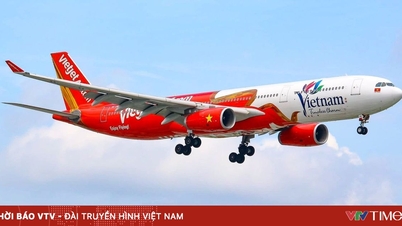

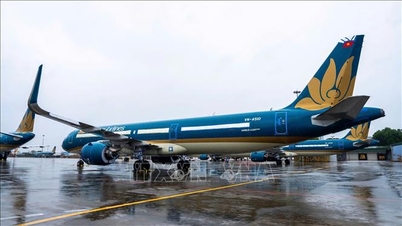

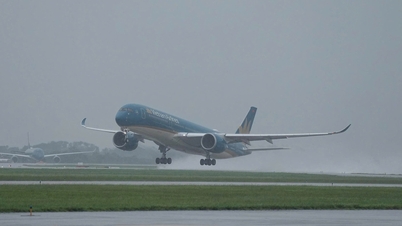

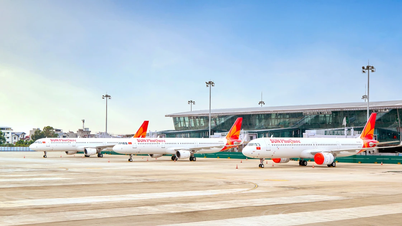

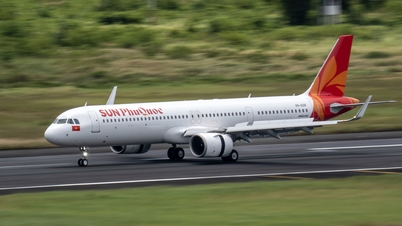









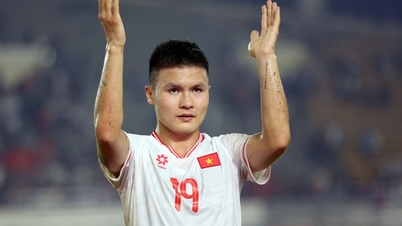





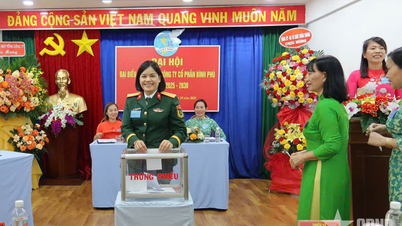
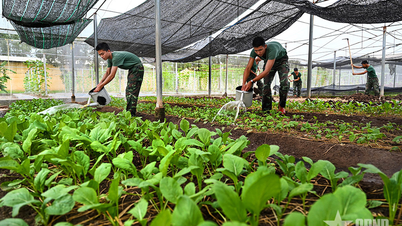
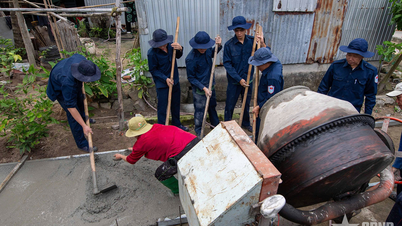
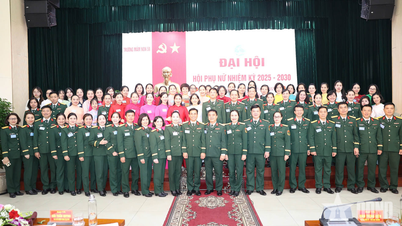
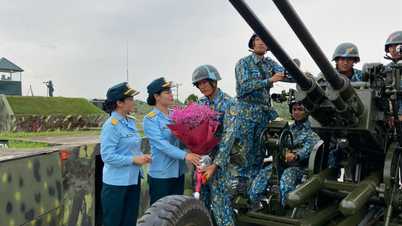






















![[VIDEO] Summary of Petrovietnam's 50th Anniversary Ceremony](https://vphoto.vietnam.vn/thumb/402x226/vietnam/resource/IMAGE/2025/10/4/abe133bdb8114793a16d4fe3e5bd0f12)
![[VIDEO] GENERAL SECRETARY TO LAM AWARDS PETROVIETNAM 8 GOLDEN WORDS: "PIONEER - EXCELLENT - SUSTAINABLE - GLOBAL"](https://vphoto.vietnam.vn/thumb/402x226/vietnam/resource/IMAGE/2025/7/23/c2fdb48863e846cfa9fb8e6ea9cf44e7)









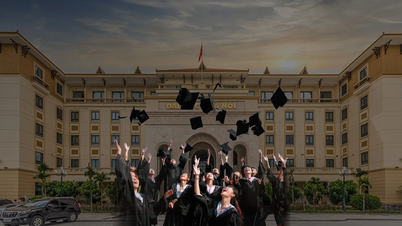













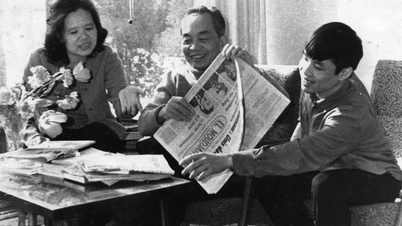

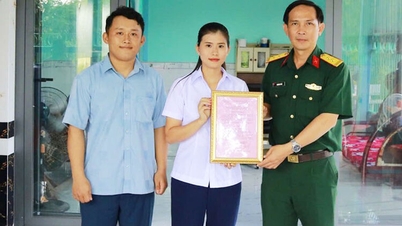






Comment (0)